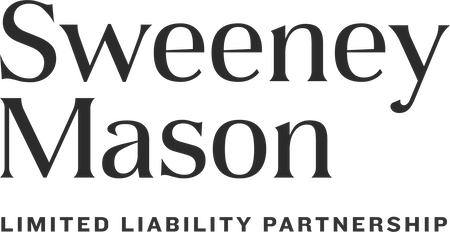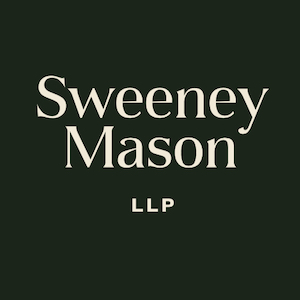Is Your Business Compliant with Accessibility Law?
By: Christopher J. Olson, Esq.
Nearly all businesses in California are subject to the requirements of both state (California Building Code, Title 24 “CBC”) and federal (Americans with Disability Act “ADA”) law prohibiting barriers to accessibility in public accommodations. Contrary to a common misconception, most businesses – even those that have been in existence for many years – are required to be accessible, and affirmative obligations are imposed on the property and business owners to ensure such accessibility. A failure to ensure compliance exposes the property/ business owner(s) to costly lawsuits that can involve not only liability for making the business compliant, but for the Plaintiff’s damages (statutory minimum $4,000.00 per occurrence), attorneys’ fees and expert costs as well – in addition to the business owner’s own attorneys’ fees and costs, which can be significant.
Who Is Covered by the ADA?
The ADA prohibits discrimination against people with disabilities and requires public accommodations to be accessible. Businesses that provide goods or services to the public are called “public accommodations” in the ADA. Most of us see the ADA in action every day when we encounter ramps at store entrances, Braille signage at elevators, and parking spaces reserved for individuals with disabilities. The ADA establishes requirements for 12 categories of public accommodations, which include stores, restaurants, bars, service establishments, theaters, hotels, recreational facilities, private museums and schools, doctors’ and dentists’ offices, shopping malls, and other businesses. Nearly all types of businesses that serve the public are included in the 12 categories, regardless of the size of the business or the age of their buildings. Businesses covered by the ADA are required to modify their business policies and procedures when necessary to serve customers with disabilities and take steps to communicate effectively with customers with disabilities. The ADA also requires businesses to remove architectural barriers in existing buildings and make sure that newly built or altered facilities are constructed to be accessible to individuals with disabilities. “Grandfather provisions” often found in local building codes do not exempt businesses from their obligations under the ADA. Commercial facilities, such as office buildings, factories, warehouses, or other facilities that do not provide goods or services directly to the public are only subject to the ADA’s requirements for new construction and alterations.
Existing Facilities: Readily Achievable Barrier Removal
The ADA requires that small businesses remove architectural barriers in existing facilities when it is “readily achievable” to do so. Readily achievable means “easily accomplishable without much difficulty or expense.” This requirement is based on the size and resources of a business. Businesses with more resources are expected to remove more barriers than businesses with fewer resources. Readily achievable barrier removal may include providing an accessible route from a parking lot to the business’s entrance, installing an entrance ramp, widening a doorway, installing accessible door hardware, repositioning shelves, or moving tables, chairs, display racks, vending machines, or other furniture. When removing barriers, businesses are required to comply with the ADA standards to the extent possible. However, any deviation from the ADA standards must not pose a significant safety risk.
Existing Facilities: Alternatives to Barrier Removal
The ADA requires the removal of physical barriers if it is “readily achievable” to do so. If removal is not readily achievable, however, alternative steps must be taken to make goods and services accessible.
Examples of alternative measures include:
- Providing goods and services at the door, sidewalk, or curb.
- Providing home delivery.
- Retrieving merchandise from inaccessible shelves or racks.
- Relocating activities to accessible locations.
Extra charges may not be imposed on individuals with disabilities to cover the costs of measures used as alternatives to barrier removal. For example, a restaurant may not charge a wheelchair user extra for home delivery when it is provided as the alternative to barrier removal.
New Construction
All newly constructed places of public accommodation and commercial facilities must be accessible to individuals with disabilities. The new construction requirements apply to any facility occupied after January 26, 1993, for which the last application for a building permit or permit extension is certified as complete after January 26, 1992.
Alterations to Existing Buildings
Alterations after January 26, 1992, to existing places of public accommodation and commercial facilities must be accessible to the maximum extent feasible. An alteration is a change that affects usability of a facility. For example, if during remodeling, renovation, or restoration, a doorway is being relocated, the new doorway must be wide enough to meet the requirements of the ADA Accessibility Guidelines. When alterations are made to a “primary function area,” such as the lobby or work areas of a business, an accessible path of travel to the altered area, and the bathrooms, telephones, and drinking fountains serving that area, must be made accessible to the extent that the added accessibility costs are not disproportionate to the overall cost of the original alteration.
Although it is impossible to insulate yourself entirely from liability or a lawsuit alleging violations of accessibility law, you can go a long way towards minimizing that risk and limiting your exposure to damages by assessing your business for barriers to access and promptly remediating any areas of non-compliance. Additional detailed and technical information can be accessed at www.ada.gov.
For further information on ADA compliance issues or addressing a claim or lawsuit for public accommodation discrimination, contact Christopher Olson, Esq. at colson@smwb.com or (408) 356-3000.
____________________________________________________________________________
The information provided in this issue of “Legal Notice” is general in nature and is not intended to answer every question that may arise under different fact situations and should not be relied on in the place of professional advice in a given case. If you have specific questions please contact Sweeney, Mason, Wilson & Bosomworth. For additional information about Construction Law, Employment Law and Civil Litigation , please contact Christopher J. Olson.
SWEENEY, MASON, WILSON & BOSOMWORTH is a Professional Law Corporation located at 983 University Avenue, Suite 104C, Los Gatos, California, 95032, telephone (408) 356-3000. This “Legal Notice” is designed to assist our clients and other business owners in spotting issues which may result in costly litigation and court awarded damages if allowed to continue unaddressed. SWEENEY, MASON, WILSON & BOSOMWORTH’s philosophy is that by educating our clients, and other businesses, about their legal obligations, including changes in the law, we best serve our legal goal of minimizing or preventing expensive litigation.

